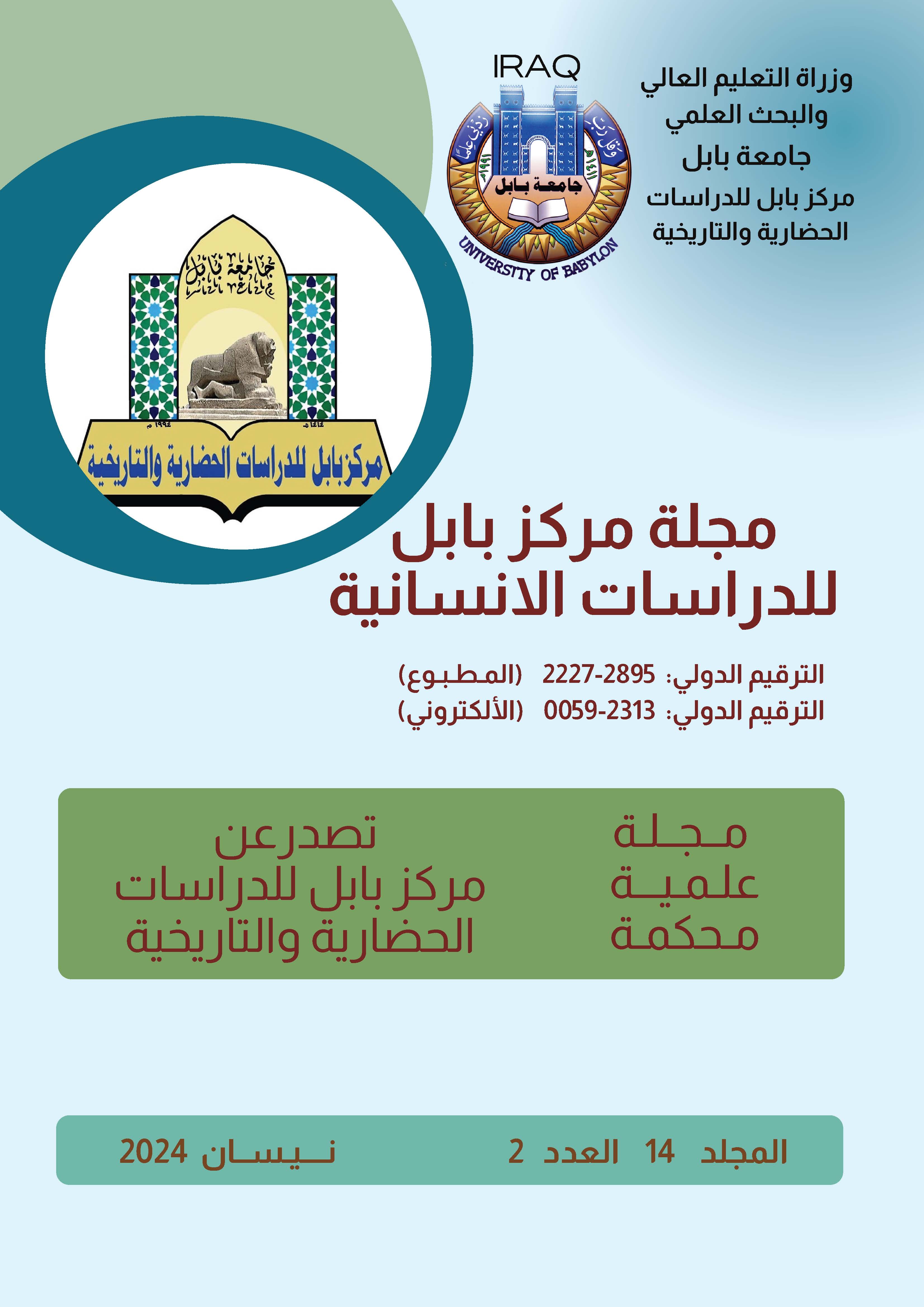سياسة عبد المحسن السعدون حِيال السلطة البريطانية في العراق للمدّة 1922 - 1925م (( دراسة تأريخية في ضوء الوثائق العراقية ))
الكلمات المفتاحية:
عبد المحسن السعدون، السلطة البريطانية، بناء الدولة العراقية، المجلس التأسيسي العراقي، الانتخابات العامةالملخص
يمكن أن يقال عن المرحلة الممتدة بين عامَي 1922 و 1925, هي المرحلة الحقيقية لبناء الدولة العراقية, على عهد حكومة عبد المحسن فهد السعدون الأولى, والتي استطاع من خلالها رسم سياسة مستقبل العراق المنظورة على وفق البروتوكولات والمعاهدات المعقودة بين العراق وبريطانيا, في وقت رأت السلطة البريطانية في السعدون الشخصية السياسية المناسبة التي تفهمت سياسة ومقاصد (بريطانيا العظمى) بعد أن أصغت إلى تقارير ورسائل دار الاعتماد البريطاني في بغداد كل الإصغاء. على إنّ أهم النشاطات السياسية التي مارسها السعدون حيال السياسة البريطانية عند توليه وزارتَيْ العدل والداخلية, ثم ترشيحه رئيساً لحكومة العراق, وهي المرحلة الحقيقية لبناء الدولة العراقية. فحكومة السعدون تُعدّ أول حكومة أولتْ اهتماماً كبيراً لمشروع الانتخابات العامة للمجلس التأسيسي العراقي الذي يُعد العمود الفقري في وضع ورسم القانون الأساسي للدولة العراقية الحديثة, وهذا ما لم تستطع تحقيقه الحكومات السابقة التي حكمت العراق على عهد الملك فيصل الأول. نجحت حكومة السعدون في إذعان الحكومة التركية بإقرارها عراقية الموصل, إثر انعقاد مؤتمر لوزان الثاني في سويسرا في 23/نيسان/1923. استطاع السعدون الحفاظ على الثروة الوطنية, وذلك من خلال ترأسهِ للجنة المفاوضات النفطية بين العراق والشركات الاحتكارية كشركة النفط الإنكليزية الفارسية, والشركة التركية سعى السعدون جاهداً لإقناع المندوب السامي البريطاني السير بيرسي كوكس بإعادة الشخصيات السياسية العراقية الوطنية من منفاهم في جزيرة هنجام وإيران, ووصولهم إلى وطنهم العراق, وفي مقدمتهم: جعفر أبو التمن, والسيد محمد الصدر, وأمين الجرجفجي, وسامي خوندة, وإبراهيم صالح العمر, وغيرهم من الساسة العراقيين.عمل السعدون بكل جهده لتوقيع البروتوكول المنعقد في 30/نيسان/1923, المتضمن إنهاء المعاهدة العراقية البريطانية عندما يصبح العراق عضواً دائماً في مجلس عصبة الأمم.عمل السعدون على عقد اتفاقية المحمرة بين العراق والسعودية لتأمين حدود العراق من الهجمات الوهابية المتكررة على البلاد.من المقررات المهمة لحكومة السعدون, إقرار نظام التفتيش الإداري الذي نصَّ على سحب المستشارين الإنكليز من الألوية (المحافظات) إلى بغداد.المراجع
التنزيلات
منشور
2024-04-30
إصدار
القسم
Articles







